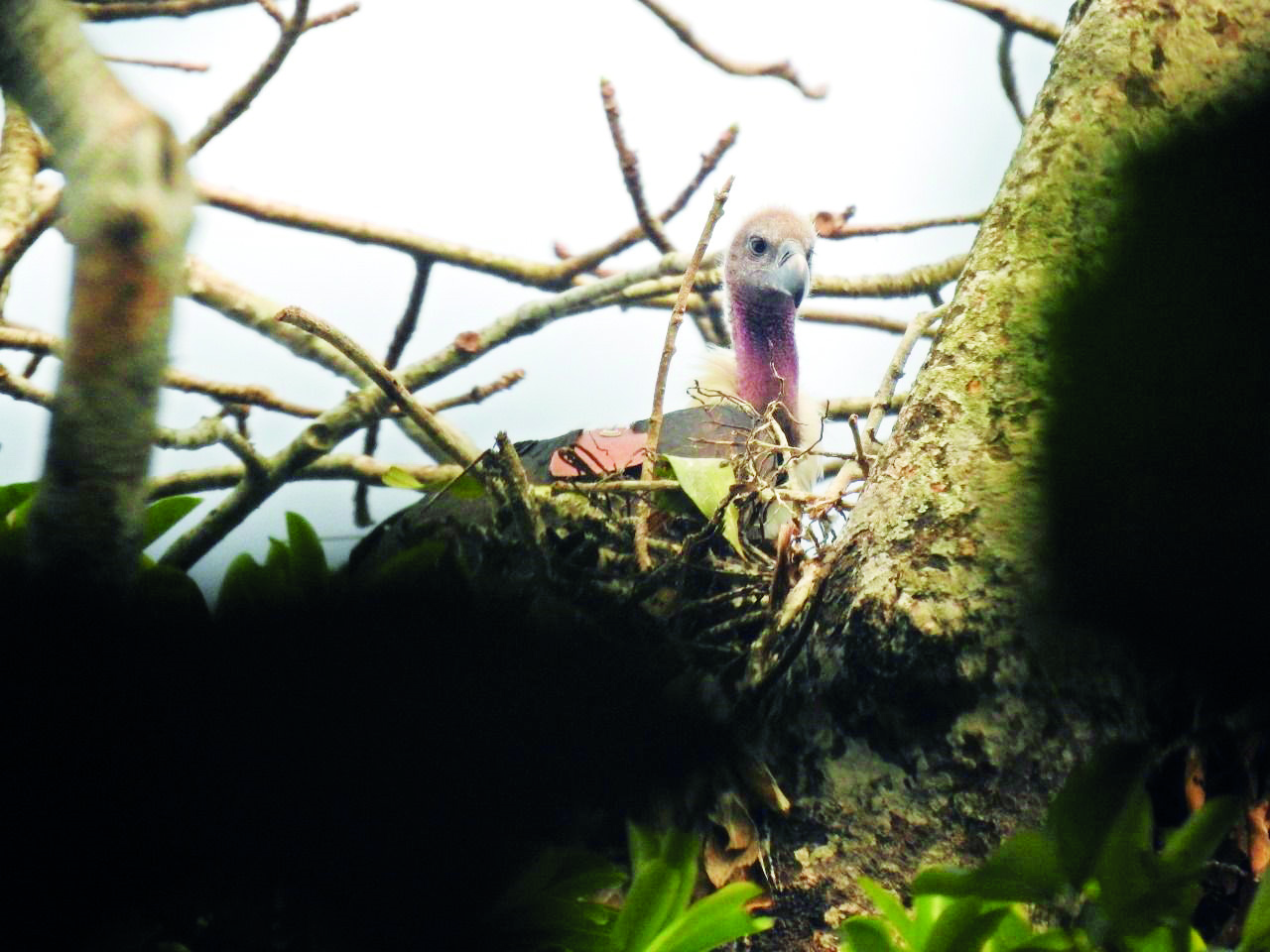Buxa Tiger Reserve achieves milestone in vulture conservation

Alipurduar: Buxa Tiger Reserve (BTR) has achieved a significant breakthrough in vulture conservation, marking a major milestone in efforts to restore the endangered species. A pair of zoo bred white-backed vultures reintroduced in the wild successfully nurtured their chick for a year in their natural nest within the Buxa forest. The chick has now taken its first flight, bearing testimony to the success of the project.
In 2023, seven pairs of white-backed vultures and four pairs of long-billed vultures were released into the wild from the Rajabhatkhawa Vulture Breeding Centre. These birds were fitted with satellite-controlled Platform Transmitter Terminals (PTTs) imported from the United States. These pairs established nests in tall tree groves within the reserve, indicating successful adaptation to their natural habitat.
The breeding success was first observed in December 2023 when monitoring teams detected an egg in one of the nests. By January 2024, the chick had hatched, making the captive-bred vultures proud parents. Over the past year, the chick thrived under parental care and it has now taken flight, signaling a positive trend in vulture rehabilitation efforts.
Currently, BTR hosts eight natural nests of vultures, four of which are nurturing chicks. Additionally, each of the other four nests contains eggs, raising hopes for further population growth. Forest officials anticipate more chicks will soon take flight, reinforcing the potential for a thriving vulture colony in the reserve. “The way vultures have started breeding in Buxa, albeit slowly, is a positive sign for an ideal vulture colony in the future,” said Apurba Sen, Field Director of BTR while talking to Millennium Post.
The Forest department established the Rajabhatkhawa Vulture Breeding Centre in 2006 to conserve vultures, which had nearly vanished from the wild. This facility operates under the supervision of the Bombay Natural History Society (BNHS), India’s only dedicated vulture conservation organization.
Similar breeding centres exist in Pinjore (Haryana) and Rani (Assam). Currently, the Rajabhatkhawa centre houses 166 vultures, including 104 white-backed vultures, 20 slender-billed vultures, and 42 long-billed vultures.
Each year, vultures are released into the wild with satellite tracking devices to monitor their movements and survival. “After Pinjore, Rajabhatkhawa is emerging as a key site for vulture breeding, strengthening the ecosystem,” said BNHS Assistant Director and vulture expert Sachin Ranade.



